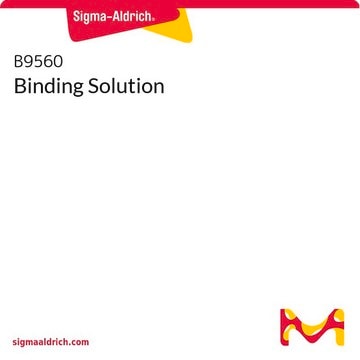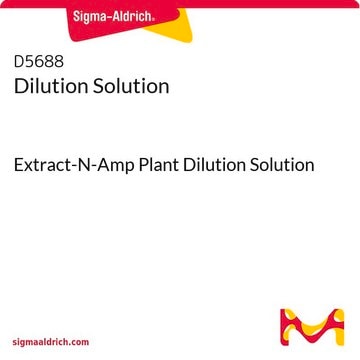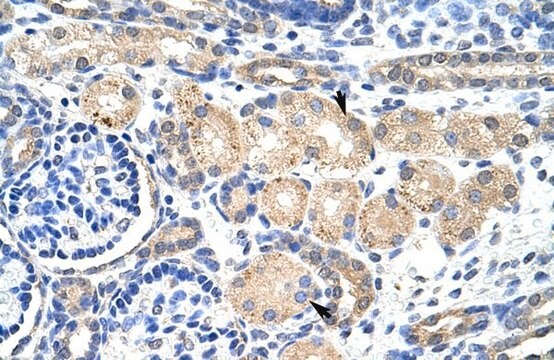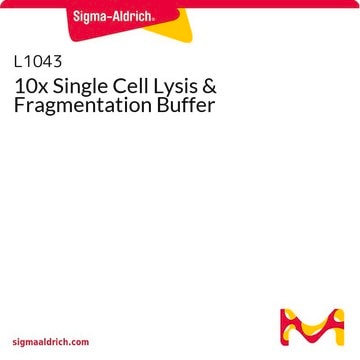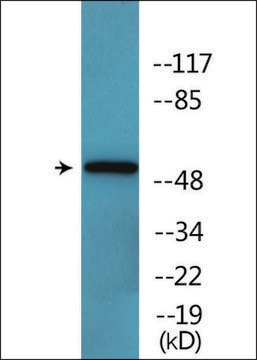MABT338
Anti-phospho-cytokeratin-8 (K8) (Ser431) Antibody, clone 5B3
clone 5B3, from mouse
Synonym(s):
Keratin, type II cytoskeletal 8, CK-8, Keratin-8, K8, Type-II keratin Kb80
About This Item
Recommended Products
biological source
mouse
antibody form
purified immunoglobulin
antibody product type
primary antibodies
clone
5B3, monoclonal
species reactivity
human, mouse
packaging
antibody small pack of 25 μg
technique(s)
immunofluorescence: suitable
western blot: suitable
isotype
IgG1κ
NCBI accession no.
UniProt accession no.
target post-translational modification
phosphorylation (pSer431)
Gene Information
human ... KRT8(3856)
mouse ... Krt8(16691)
Related Categories
General description
Specificity
Immunogen
Application
Western Blotting Analysis: A representative lot detected phospho-cytokeratin-8 (K8) (Ser431) in Western Blotting applications (Yoon, K.H., et. al. (2001). J Cell Biol. 153(3):503-16; Ridge, K.M., et. al. (2005). J Biol Chem. 280(34):30400-5; Ku, N.O., et. al. (1997). J Biol Chem. 272(11):7556-64).
Quality
Western Blotting Analysis: 2 µg/mL of this antibody detected phospho-cytokeratin-8 (K8) (Ser431) in lysate from HeLa cells treated with Calyculin A/Okadaic Acid.
Target description
Physical form
Other Notes
Not finding the right product?
Try our Product Selector Tool.
Certificates of Analysis (COA)
Search for Certificates of Analysis (COA) by entering the products Lot/Batch Number. Lot and Batch Numbers can be found on a product’s label following the words ‘Lot’ or ‘Batch’.
Already Own This Product?
Find documentation for the products that you have recently purchased in the Document Library.
Our team of scientists has experience in all areas of research including Life Science, Material Science, Chemical Synthesis, Chromatography, Analytical and many others.
Contact Technical Service